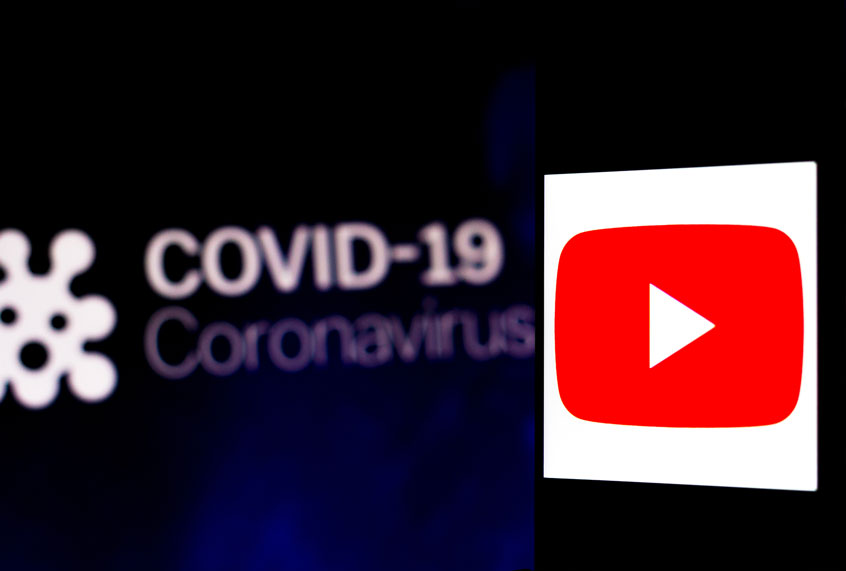A new study reveals that more than one out of four of the most popular YouTube videos about the coronavirus contains misinformation.
“Over one-quarter of the most viewed YouTube videos on COVID-19 contained misleading information, reaching millions of viewers worldwide,” wrote Heidi Oi-Yee Li and Adrian Bailey of the University of Ottawa, David Huynh of Carleton University and the University of Ottawa and James Chan of Ottawa Hospital in an article published in “BMJ Global Health.” “As the current COVID-19 pandemic worsens, public health agencies must better use YouTube to deliver timely and accurate information and to minimise the spread of misinformation.”
The scientists performed a YouTube search for “coronavirus” and “COVID-19” and analyzed the top 75 videos from each search. They excluded videos that they felt did not meet their scholarly criteria — including “duplicates, non-English, non-audio and non-visual, exceeding 1 hour in duration, live and unrelated to COVID-19” — and analyzed the factual accuracy of the 69 remaining videos, which had received a total of 257,804,146 views.
They found that although “government and professional videos contained only factual information,” they were not as influential as some of their less informative counterparts, as “they only accounted for 11% of videos and 10% of views.”
The authors broke down which videos were most likely to contain misinformation.
“Of the 19 non-factual videos, six were from entertainment news (32%), five were from network news (26%), five were from internet news (26%) and three were from consumer videos (13%),” the authors wrote. “Within each video category, there was a greater proportion of non-factual videos in internet news (63%), entertainment news (60%), consumer videos (33%) and network news (20%), compared with 0% for professional and government videos.”
The researchers also urged professionals and government agencies to improve their YouTube presence: “YouTube is a powerful, untapped educational tool that should be better mobilised by health professionals to control information and influence public behaviour,” they wrote. “Given that professionals and government organisations provide the highest quality content, these groups should find strategies to increase the viewership and the impact of their videos on YouTube.”
The authors acknowledged “limitations” in their study, including that it was a cross-sectional study conducted during a specific period of time, the fact that many videos had to be left out and other studies may use different criteria for exclusion, their decision to only use English-language videos, their lack of “a validated tool to evaluate COVID-19 related content” and the fact that “YouTube videos present on other internet sites were not captured.”
There have been a number of popular videos promoting misinformation about the pandemic, with the “Plandemic” video being among them. Salon’s Nicole Karlis wrote of “Plandemic” earlier this week that “editing-wise, the video is seductive: it posits quite convincingly — at least, within the un-fact checked realm of the documentary — that the coronavirus is part of a vast, coordinated plot, and that scientists are lying about it.”
Conspiracy theories are especially dangerous during public health crises, like this pandemic. Joanne Miller, an associate professor of political psychology at the University of Delaware, told Salon earlier this week that conspiracy theories can be bad for public health.
“At the individual level, they can be dangerous,” Miller explained. “Say, for example, with regard to ones about COVID-19: If individuals who believe conspiracy theories around the virus choose not to get a vaccination when one ultimately is available, that’s both dangerous for them and for surrounding communities. If a greater percentage of people don’t get vaccinated, obviously that’s a problem for the whole community.”

